On September 19, HLS hosted a celebration of the 30-year anniversary of the school’s Human Rights Program, a home for human rights scholarship and advocacy founded in 1984 by Professor Henry J. Steiner ’55. Alumni gathered to celebrate the HRP’s commitment to issues ranging from counterterrorism and human rights to sexual and reproductive rights across the globe, but the day also showcased the human rights movement’s longstanding commitment to critical self-reflection.
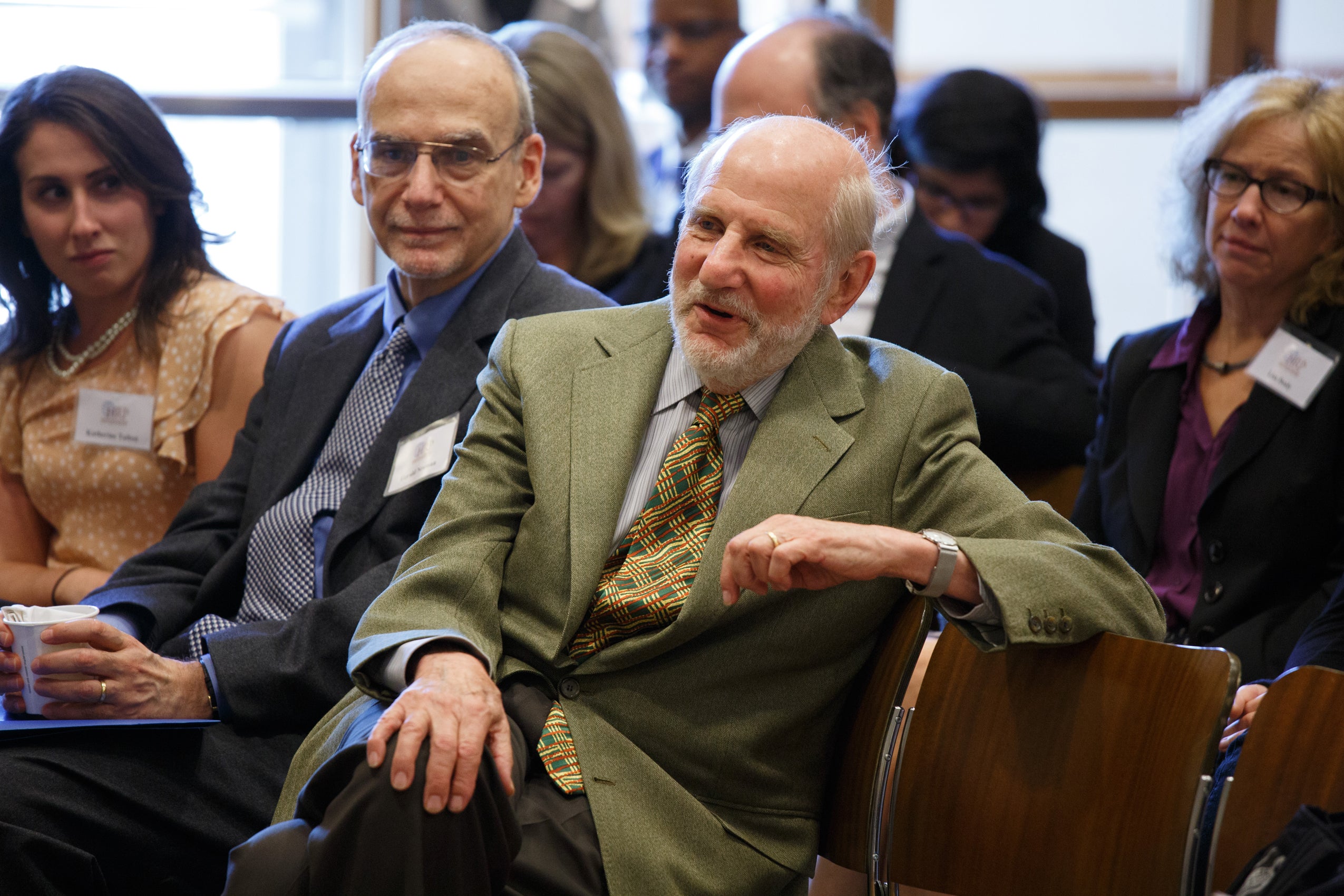
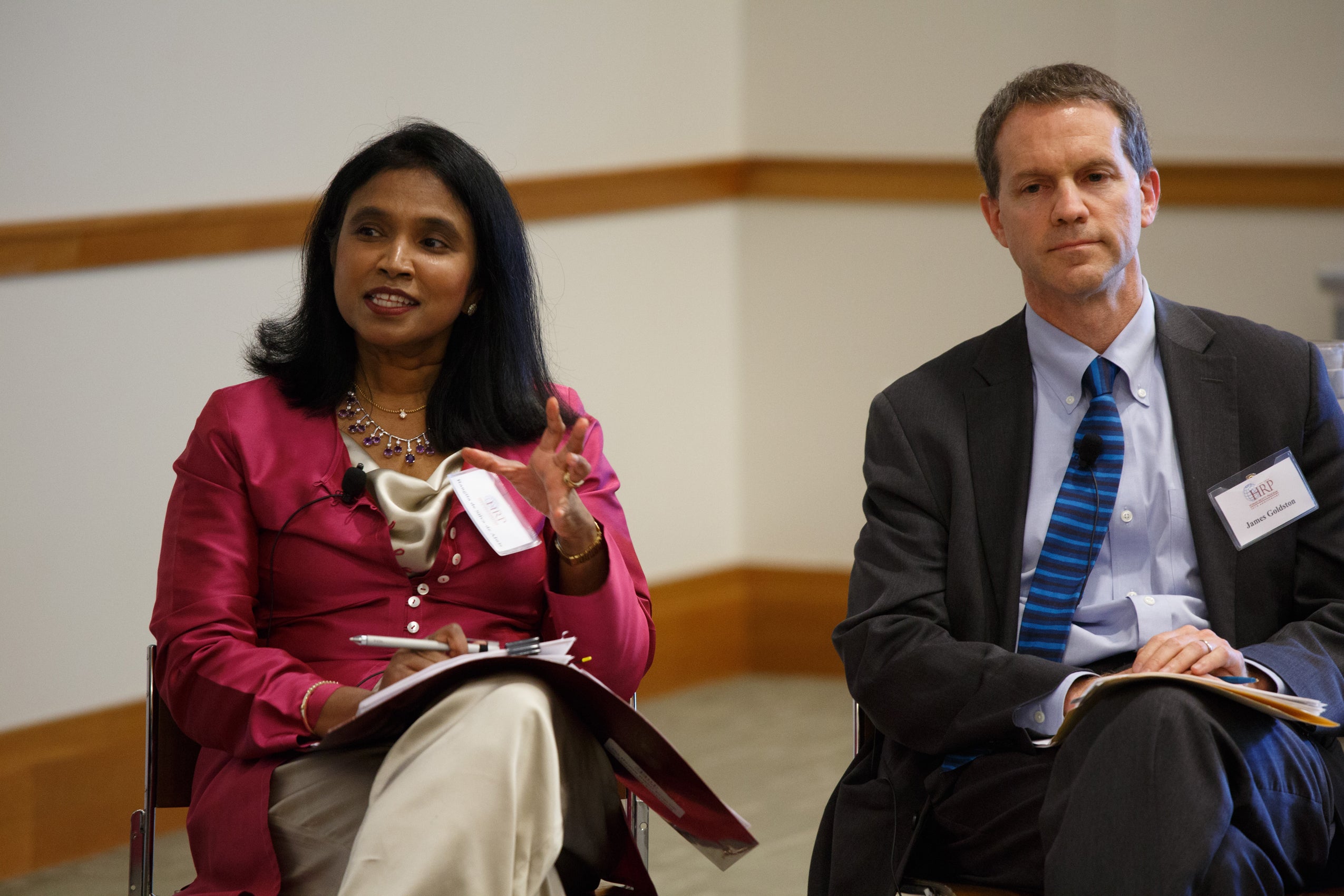
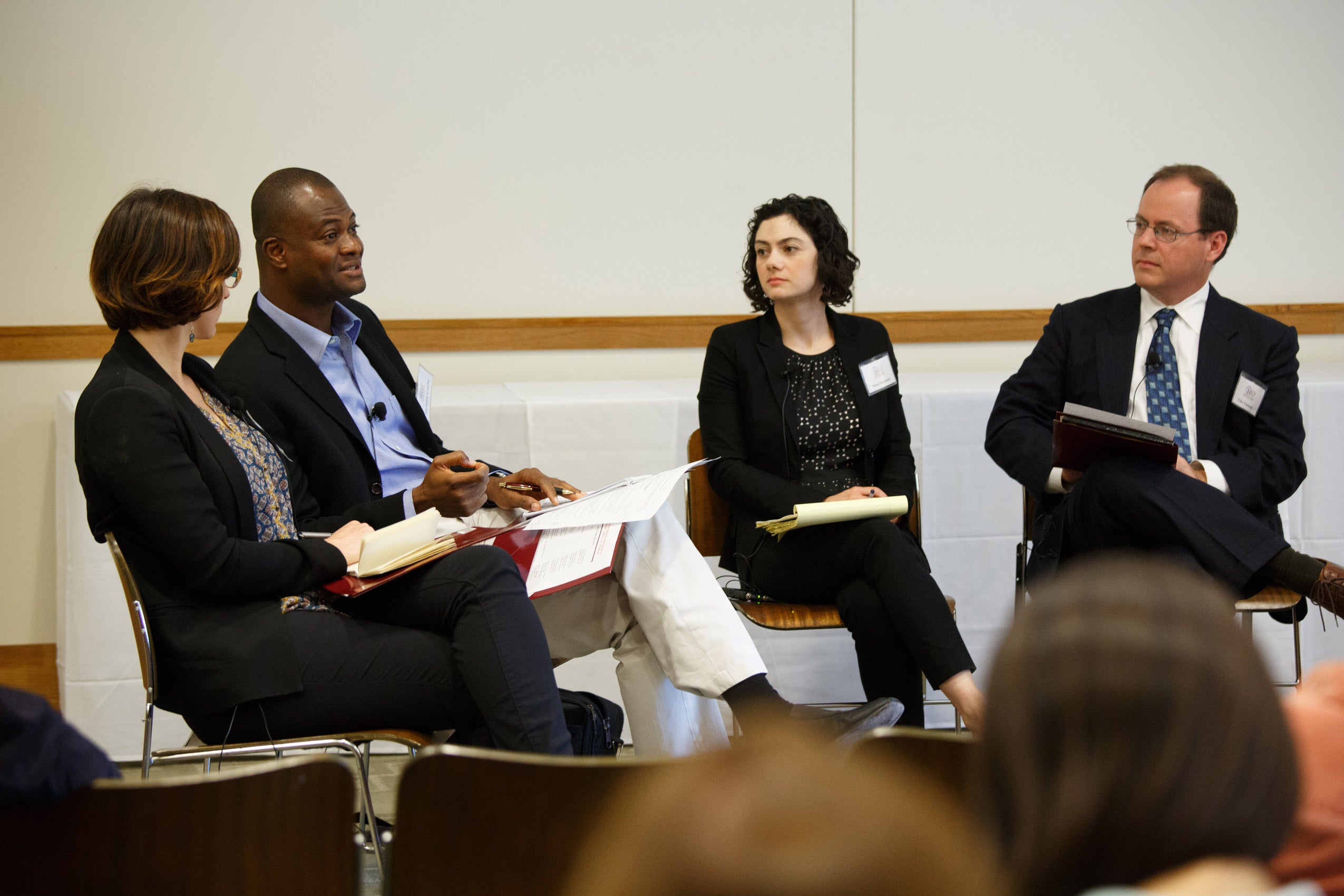
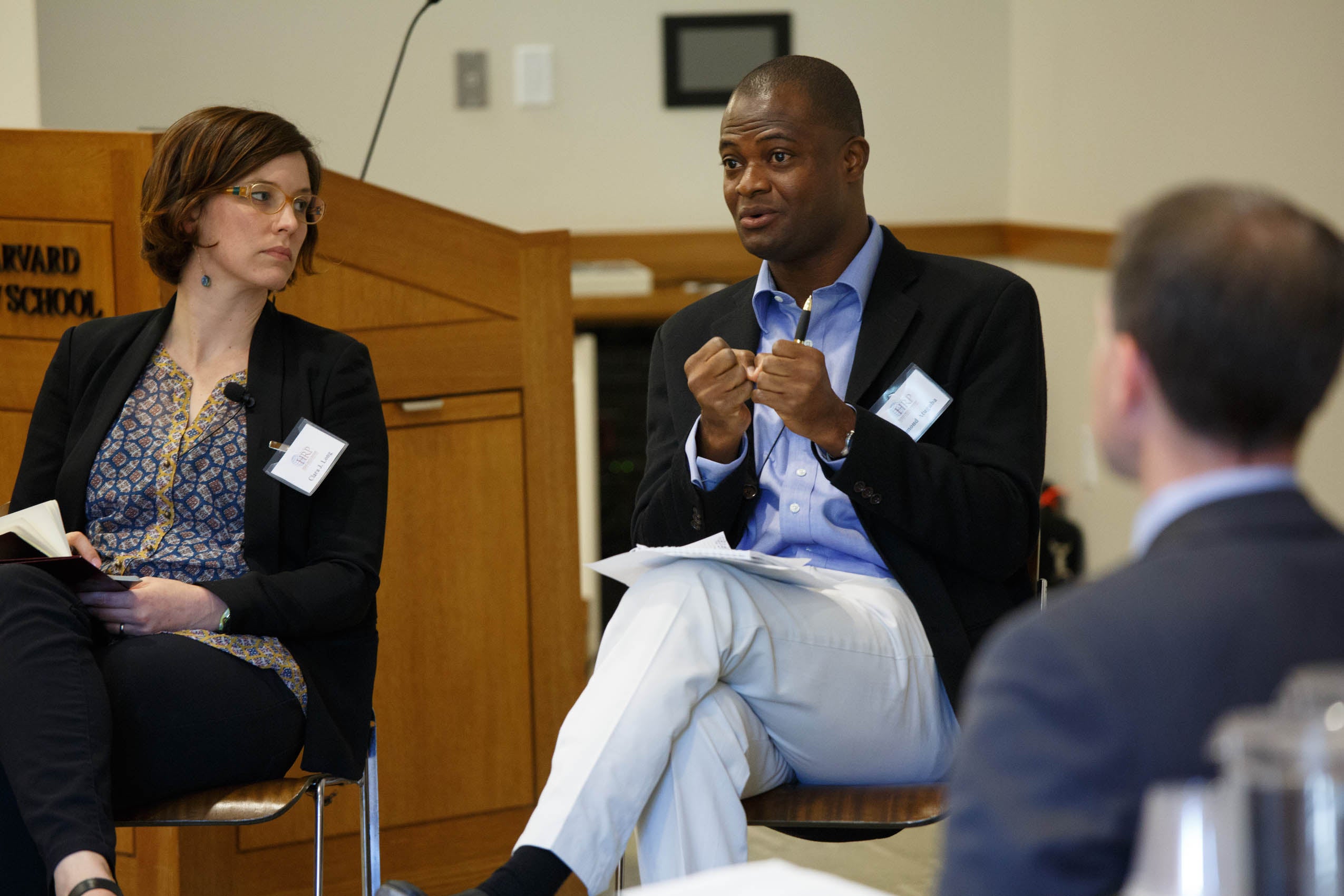
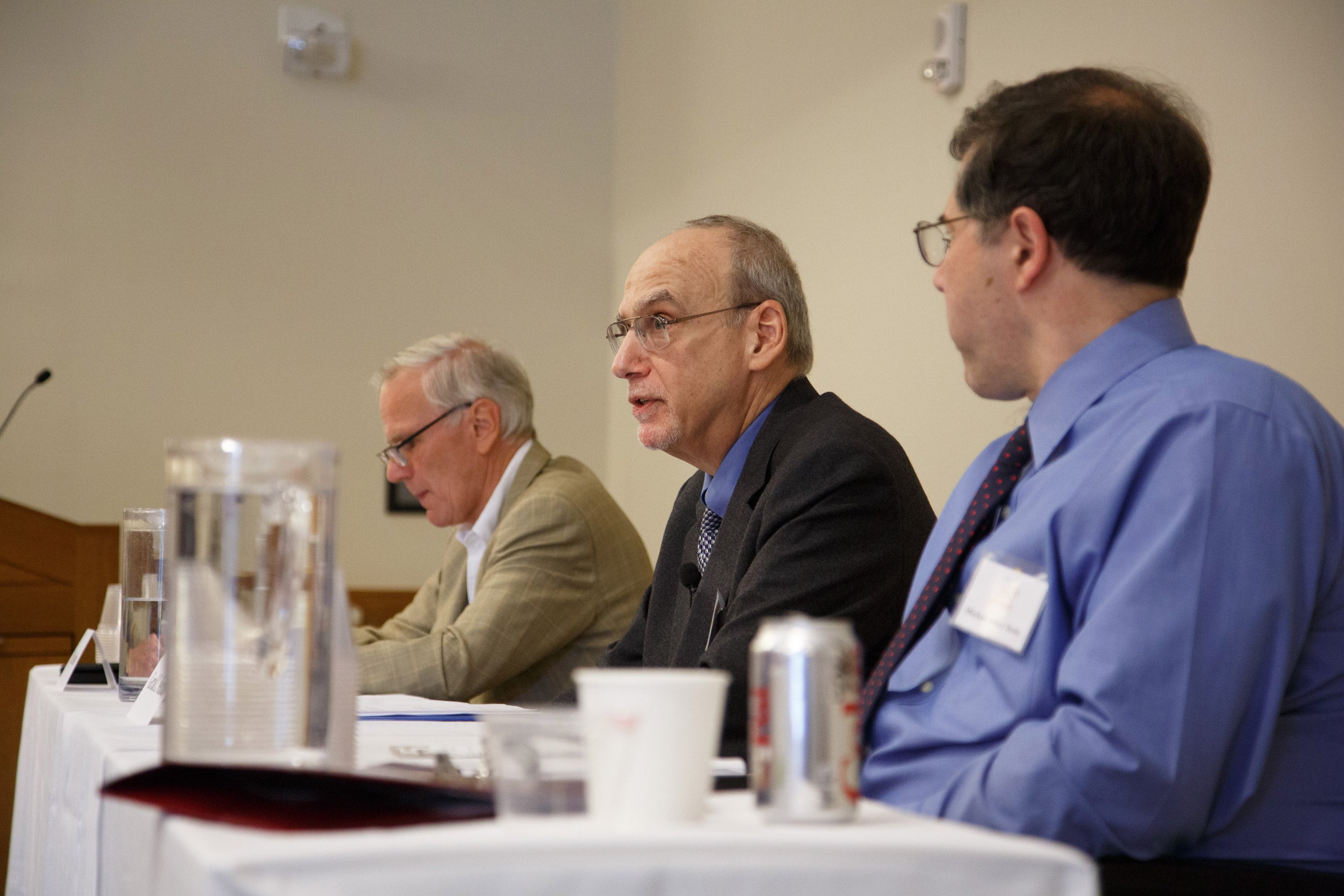
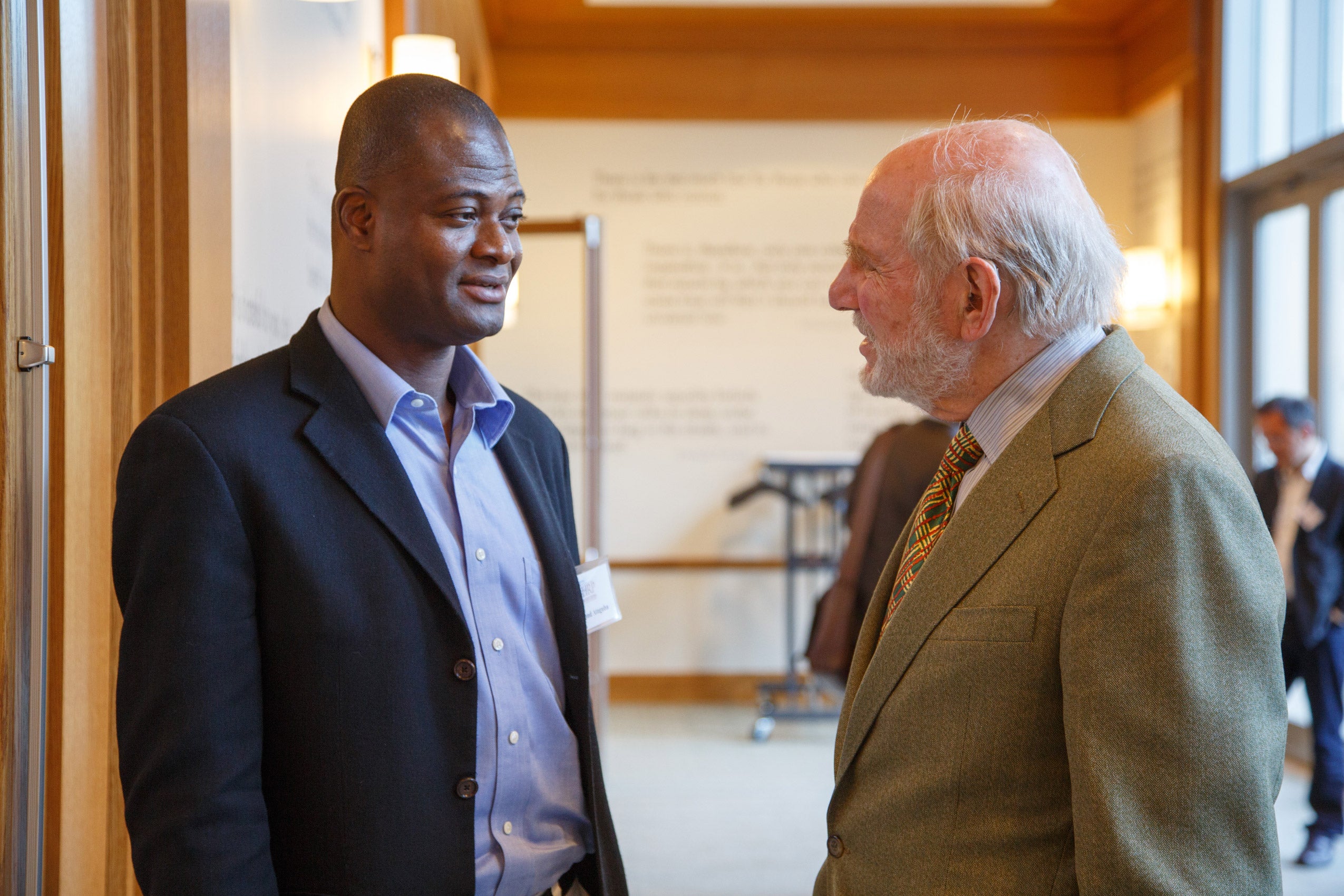
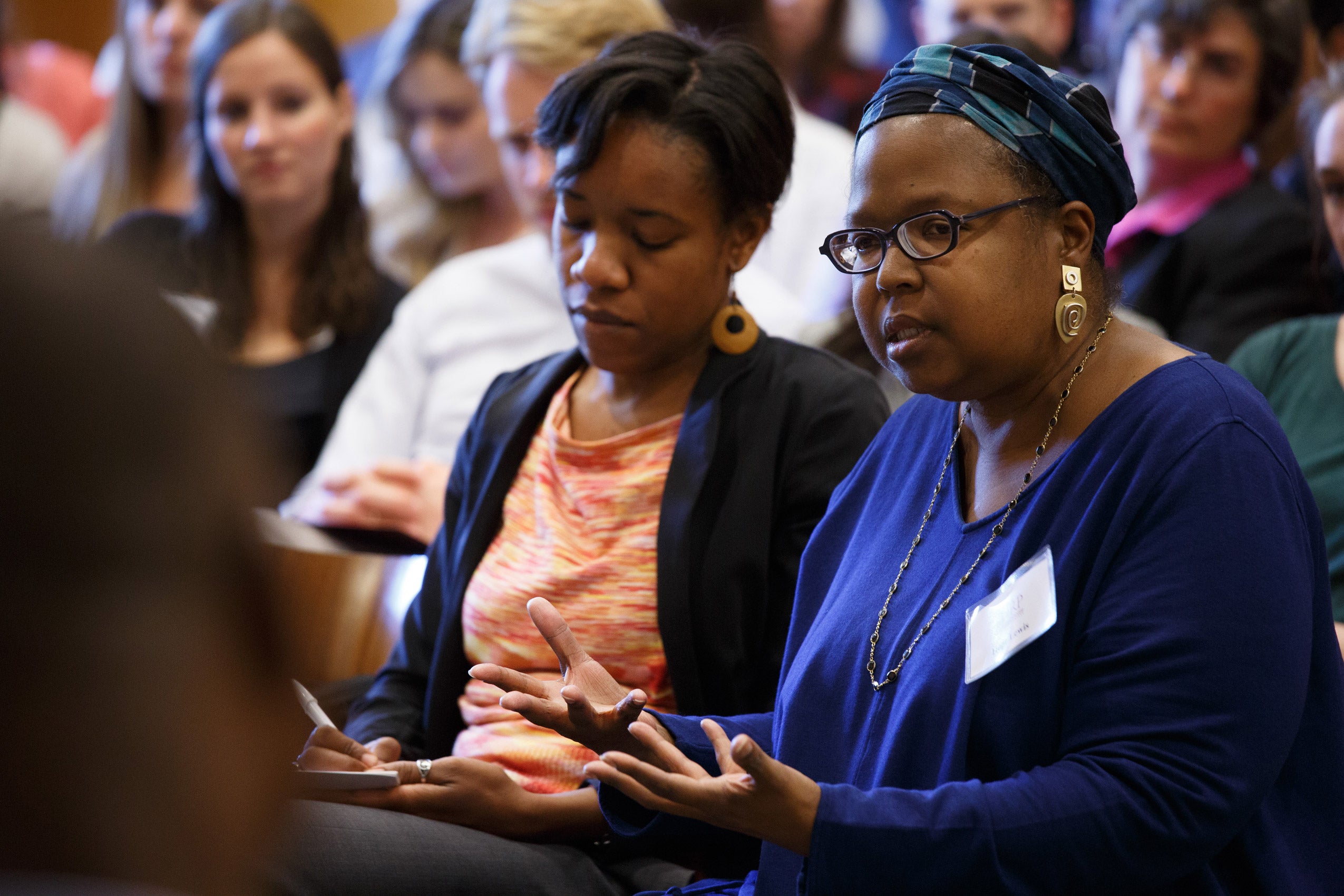
The day kicked off with a keynote address by former Legal Adviser of the State Department and former Yale Law School Dean Harold Hongju Koh ’80. Koh interwove his own personal narrative and scholarship with the history of the HRP at Harvard and its influence on human rights programs at other universities. He then moved to the political, criticizing President Obama’s decision to keep targeted killings secret and referring to the president’s ISIS strategy as “bungled,” albeit legal.
The keynote was followed by two panels reflecting both on the history of the human rights movement and future plans for U.N. treaty bodies. The first panel, titled “Human Rights Advocacy Across the Generations,” brought together five HLS alumni, including Assistant Clinical Professor Susan Farbstein ’04, co-director of the program’s International Human Rights Clinic, plus Clinical Professor and co-director of the Human Rights Program Tyler Giannini. The discussion ranged from seminal moments in human rights history and the limits of the human rights movement to the ways in which the movement’s strategies have evolved over the years and predictions about how it will change in the future.
The most recent graduate on the panel, Human Rights Watch researcher Clara Long ’12, began by citing September 11 and Hurricane Katrina as the two most important events in recent history for their influence on domestic human rights issues. The panelists also named the Rwandan genocide, the end of apartheid in South Africa, the creation of the International Criminal Court, and the end of the Cold War as major moments for international human rights. Panelist Rangita de Silva de Alwis S.J.D. ’97, director of the Global Women’s Leadership Initiative at the Woodrow Wilson International Center for Scholars, however, criticized the prior discussions, including Koh’s speech, for an “appalling” failure to acknowledge major moments in women’s rights history. “The worst and most pervasive and unaddressed human rights violation on earth happen to be women’s human rights,” de Silva de Alwis said.
The panel discussion then veered to the critical role that language plays in shaping human rights issues across the globe. Raymond Akongburo Atuguba LL.M. ’00, S.J.D. ’04, the executive secretary to the president of the Republic of Ghana, noted that September 11 in particular played a major role in replacing “the language of human rights with another language: security and policy.” The panelists agreed that human rights vernacular had come to play a pivotal role in shaping legislation and galvanizing grassroots advocates, but some expressed concern that the movement needed to focus more on the language used in security resolutions, statutes, and general human rights discourse.
Several of the panelists agreed that the main task for the human rights movement in the future would be to get comfortable “working in contradiction.” “I don’t mean to work crosswise to myself, but to be able to hold a critical space for my own actions and my own effects as an advocate and an investigator,” Long said. “To the extent that the movement can do that generally, I think we learn from that, and the place I learned to do that was here, in this program.”